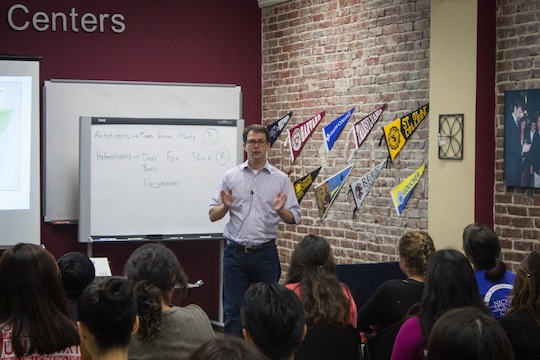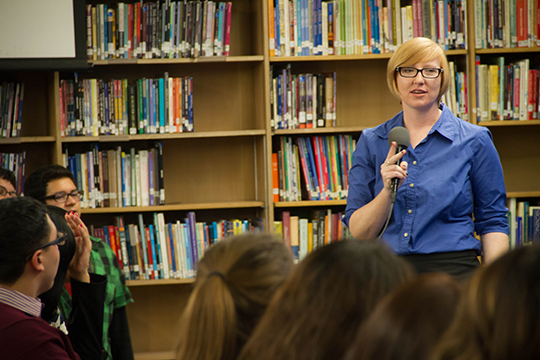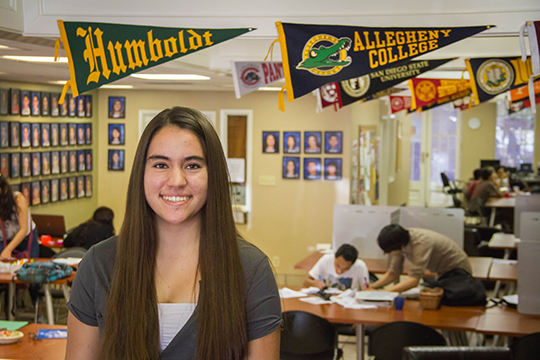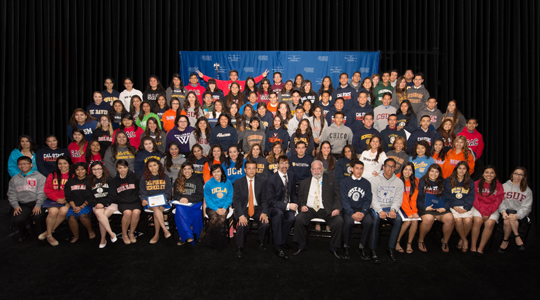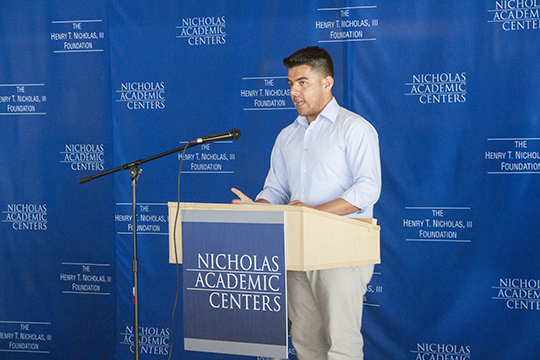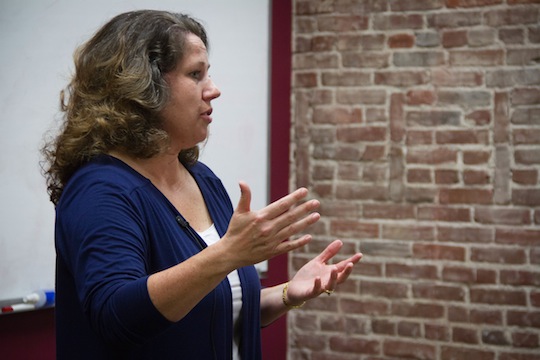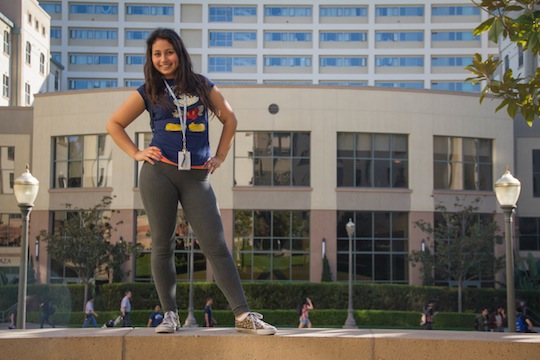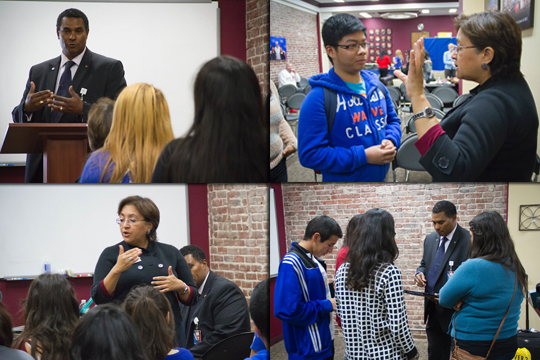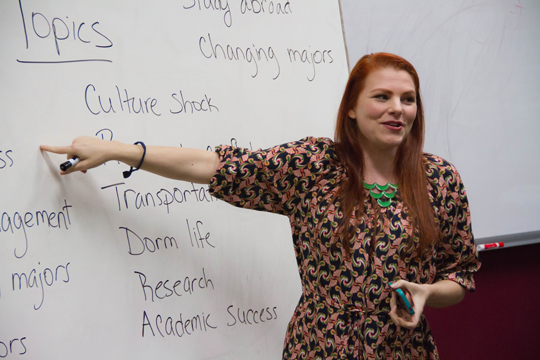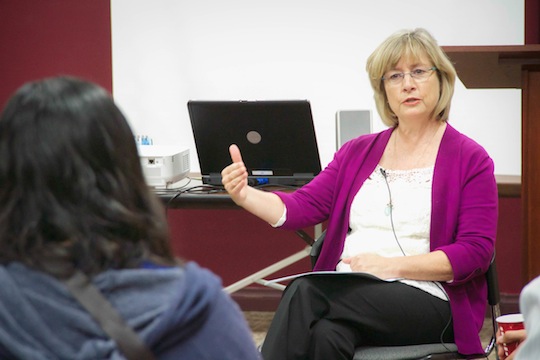Chandra Jenkins, Former Assistant Director of Higher Ed Services, Begins Engaging College Students
From Junior to Freshman, Karla Atcheson Gets an Early Start
The Nicholas Academic Centers Celebrates the Graduation of 124 NAC Scholars in 2014
We’re proud to announce that we have successfully graduated another wonderful class of Nicholas Academic Centers’ Scholars! On Saturday, June 7, at the Newport Dunes Waterfront Resort & Marina in Newport Beach, the NAC celebrated the graduation of 124 students, which brings our total number of NAC graduates to 478! Of these graduates, 77% are heading to 4-year universities and the other 23% will be enrolling in 2-year colleges. More than 700 people attended this year’s celebration, including students, siblings, parents, school officials, teachers, and counselors, as well as several elected officials from around Orange County, including Santa Ana city officials.
2014 marks the 6th year that we have celebrated the accomplishments of the NAC graduates. Over the last six years we have been incredibly lucky to work with hundreds of young women and men from the Santa Ana Unified School District and neighboring communities. We have begun to see the larger community impact of our work as our alumni begin to graduate from colleges like UC Berkeley, Cal State Fullerton, Wabash College, Hampshire College, Colgate University, Morningside College, and Georgetown University, to name a few.
During this year’s celebration, NAC Co-Founder, Dr. Henry T. Nicholas, III, praised NAC graduates. “These students are beating the national average in terms of college retention,” he said. “And they are nearly doubling the national average for Hispanic students.”
NAC graduates maintain a 94 percent college-retention rate when attending four-year private institutions, compared with the national average of 77 percent. The national average retention rate for Hispanic college students is less than 50 percent.
Dr. Nicholas has awarded NAC graduates more than $700,000 in need-based scholarships, in addition to the more than $4.2 million in scholarships and grants earned by graduates since 2009.
Returning NAC alumnus Genesis Luviano attended the event in support of her sister, Gaby, who graduated this year. “The Nicholas Academic Centers provided me with experiences that I would never otherwise have had the chance to have. For this I am extremely grateful,” she said. Genesis Luviano graduated from Smith College in Massachusetts this year and will start work in Brazil as a Fulbright Scholar early next year.
Mariana Hernandez de Vicenzo, who graduated from the NAC in 2010, went on to complete her degree at Georgetown University this spring. “This experience has completely changed my life,” she said. “Like many [NAC students], I was the first in my family to go to college, but most definitely not the last.”
Four students were presented special merit scholarships of $1,000 by Lake Forest-based Faubel Public Affairs, led by former Southern California Edison executive Roger Faubel, as well as Costa Mesa-based law firm Rutan & Tucker.
“These students are going to be the leaders of their generation,” said NAC co-founder Judge Jack K. Mandel (ret.). “Colleges are competing against each other to get these students, and I’m so proud of them.”
Click HERE to see the full photo album on our Facebook page.

